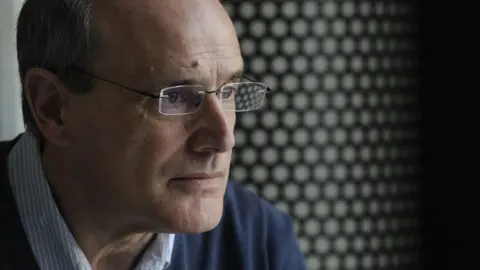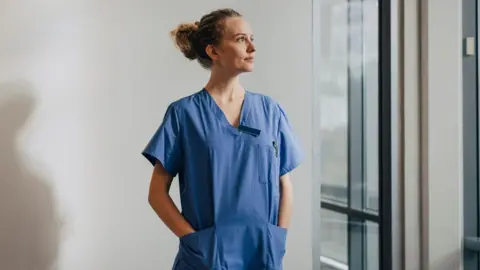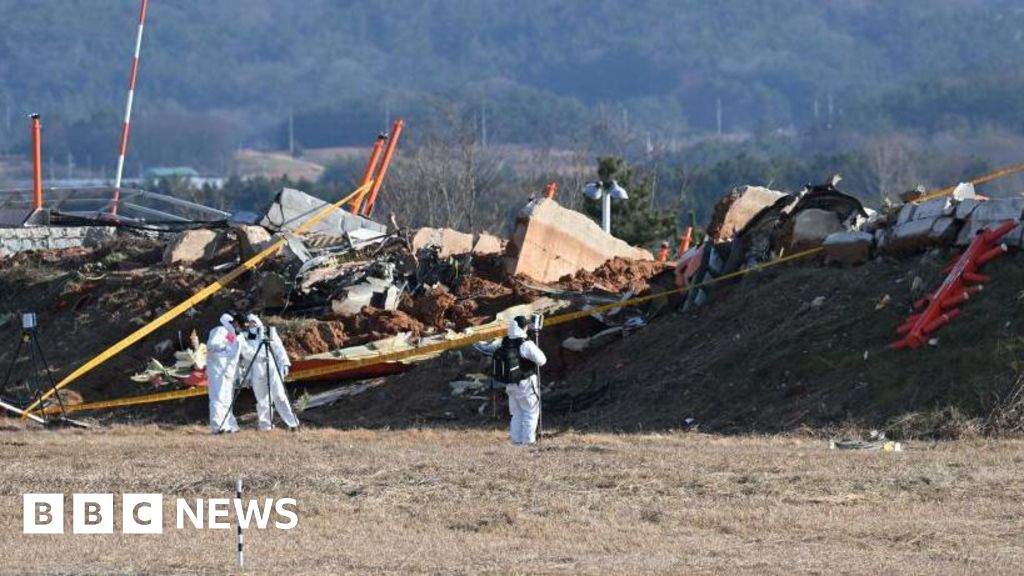
 Getty Images
Getty Images
Professor Raphael Bengoa has returned to Northern Ireland and said the need for transforming health and social care, backed by sustained budgets, is even more pressing than ever.
Prof Bengoa headed the panel which produced a 2016 report which set out the need for health transformation.
His one-day visit is the final piece in the Department of Health's reset jigsaw which has recently seen the publication of the long-awaited report on hospital reform and other plans on rebooting health service reform.
Ahead of speaking at a conference, in the La Mon Hotel, he said he welcomed the opportunity to return and to see that health transformation remains an "overriding priority".
'Major struggles on several fronts'

 Professor Raphael Bengoa
Professor Raphael Bengoa
The audience will include health professionals from hospitals to community care.
He said he was aware of the challenges that the health service had faced over the period since 2016.
"It is by no means unique in that regard. Right across Europe, there are major struggles on several fronts," he said.
"These include balancing short-term pressures with long-term reform needs, dealing with growing demand and greater patient complexity, and recovering from the impact of the COVID-19 pandemic," he said.
The conference will hear more about what's happening in the community with presentations from the Community Pharmacy, Integrated Care in the Community and Multi-Disciplinary Teams - a model of care which should bolster support for GPs including input from physiotherapists and social workers.
The Health Minister said the Bengoa visit is about "rebooting the reform agenda".
"Systems not Structures was about much more than our hospitals. It's about fundamentally rebalancing provision to provide more care at community level, to focus on prevention rather than treatment, and to help people manage conditions and live long healthy lives," said Mike Nesbitt.
"Achieving this shift is the work of a generation," the minister added.
Analysis: How can we transform with tight budgets?
Transformation, has been slow and low key compared with that set out in 2016.
Northern Ireland's stop, start government, the pandemic and lack of recurrent budgets are, without a doubt, partly to blame but the lack of major decision making and imagination about how to do things differently with the funding available cannot be ignored.
The big question for the professor will be how do you transform and be radical when all services including those in hospital are stretched and budgets tight?
There was the publication of significant reports around general emergency surgery, which separated planned from emergency surgery.
These opened the wider debate around the need for transformation to protect patients to continue providing non-emergency surgery.
The creation of surgical hubs on some hospital sites followed to tackle waiting lists.
General Practice has said its funding has been cut and practices have closed which social care remains the poor relation.
Reality check

 Getty Images
Getty Images
Transformation, has been slow and low key compared with that set out in 2016
The conference will also hear about tackling health inequalities, which is something Nesbitt has said he wants to prioritise.
Nesbitt said reconfiguring hospital services remains an important part of the overall jigsaw - critics have said the plan contained in Hospitals - creating a network for Better Outcomes, which is now out for public consultation lacked detail and did not go far enough about reducing Northern Ireland's sprawling hospital network.
Instead of closing hospitals, which is not a vote winner, the department is removing some services from hospitals and centralising them in one location instead.
This means some people must travel further to receive surgery.
As in 2016, there is a more positive vibe coming from the front-line health services.
Pay deals are slowly getting across the line and there is evidence of more joined up thinking between the health trusts.
Also, the minister has said he is the man to the make the "difficult calls" and when he steps down in 2027 he said that he should be held to account.
Wednesday should not be an exercise in back slapping and cheerleading but instead a reality check and planning how to move forward.
The professor pulled it out of the bag eight years ago.
Let’s hope the former Basque country minister can reignite the debate and encourage Nesbitt to leave a legacy that will make a real difference.
 (1).png)
 2 months ago
14
2 months ago
14













